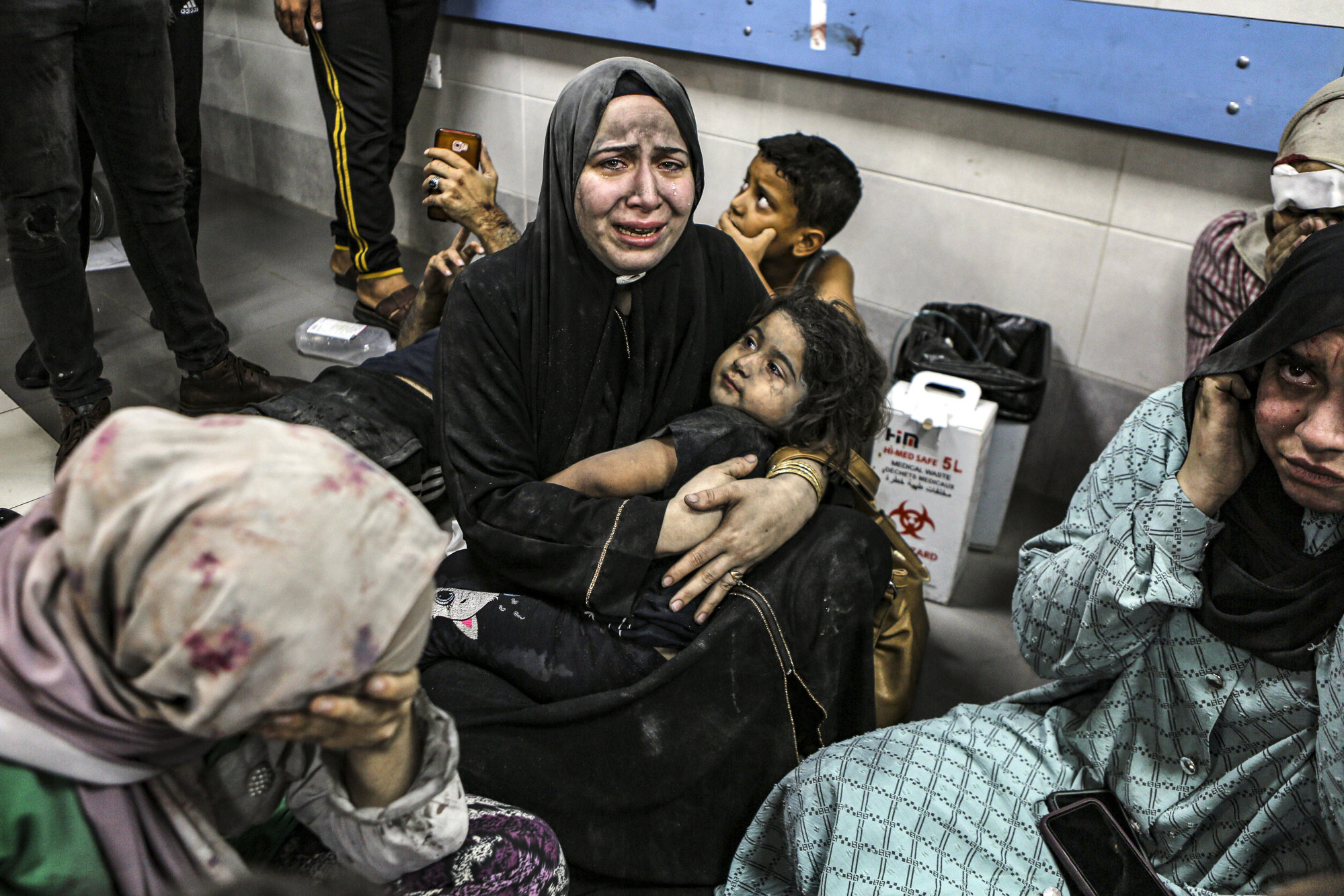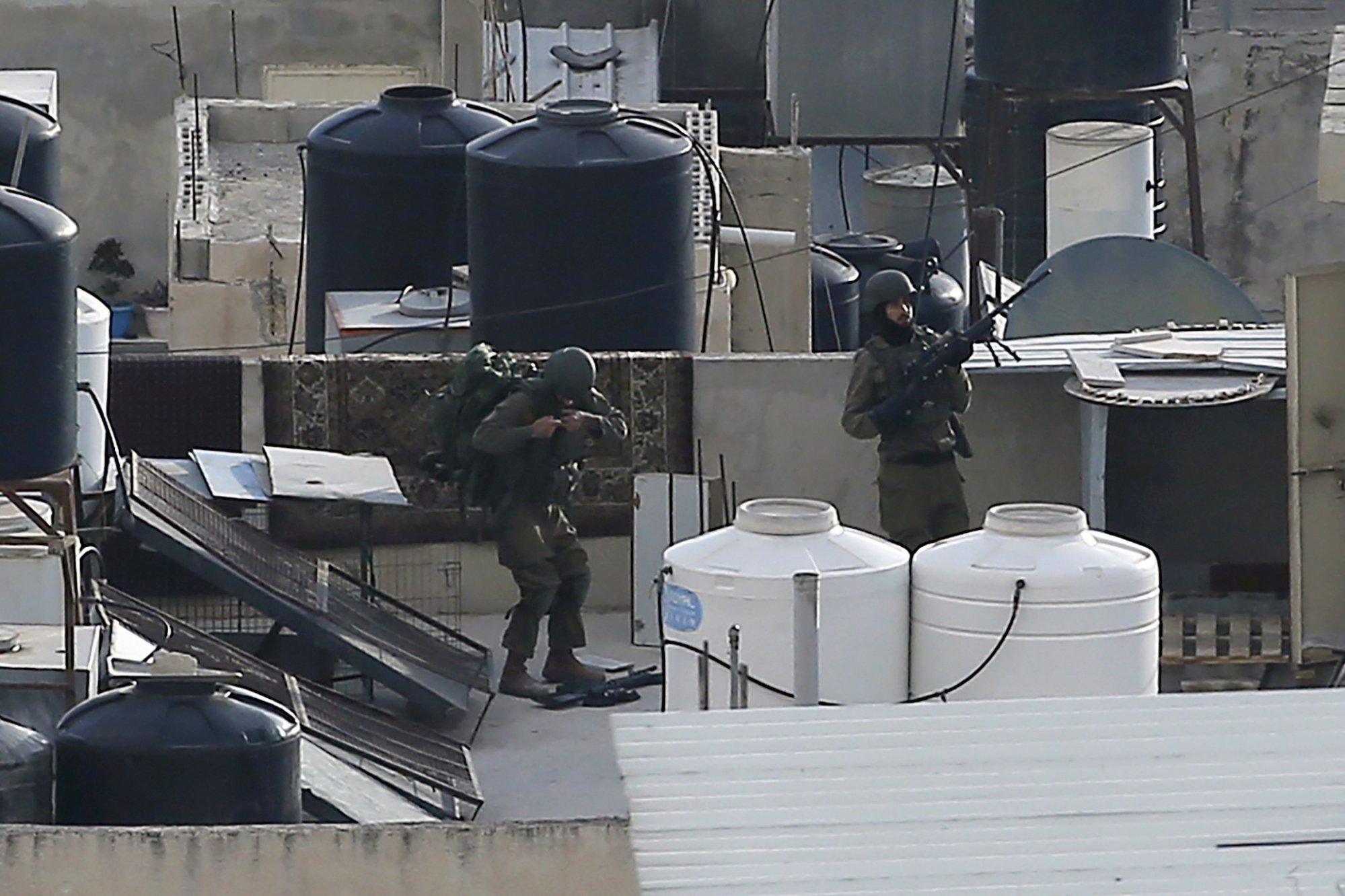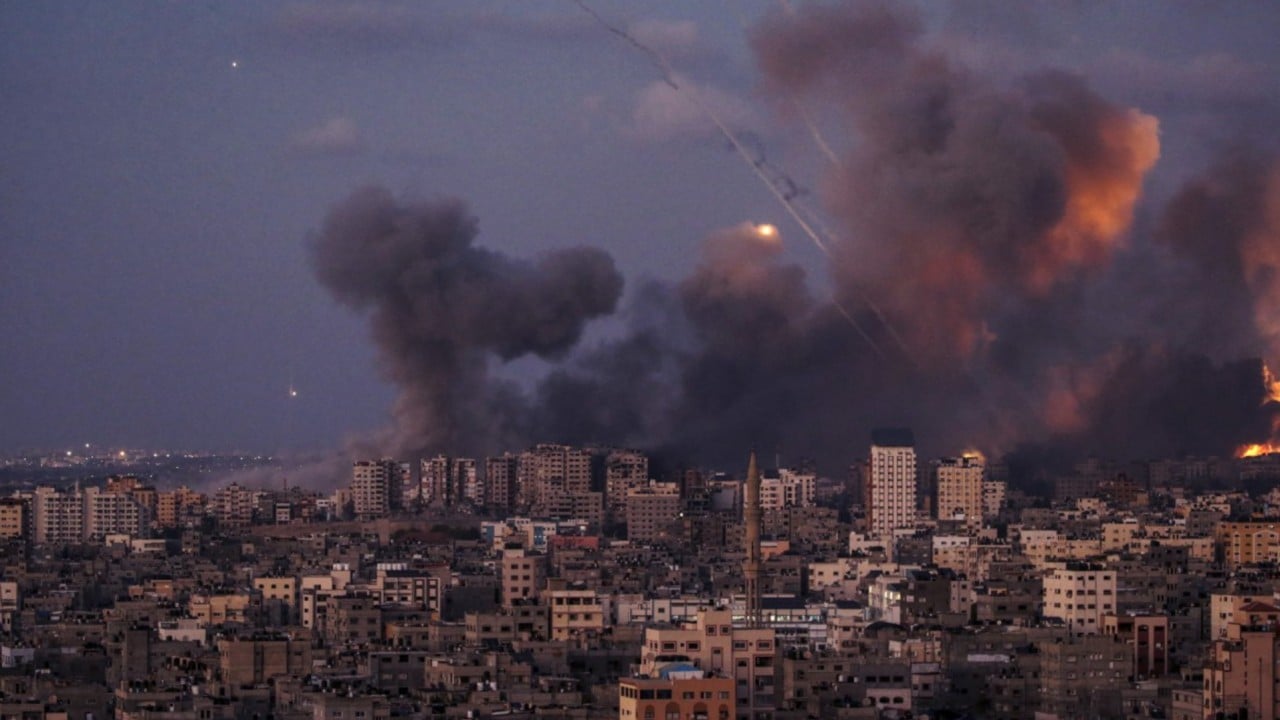
Israel, US deny Gaza ceasefire deal to free hostages; WHO says al-Shifa hospital a ‘death zone’
- Israeli PM Benjamin Netanyahu and Washington deny there is a US-brokered deal between Israel and Hamas to free some hostages in Gaza
- WHO said UN assessment team’s visit to hospital found ‘death zone’, with a mass grave and nearly 300 patients inside with 25 health workers
The United States said on Saturday it was still working to secure a deal between Israel and Hamas after a reported tentative agreement to free women and children held hostage in Gaza in exchange for a five-day pause in fighting.
“We have not reached a deal yet, but we continue to work hard to get to a deal,” White House National Security Council spokeswoman Adrienne Watson said on X, formerly Twitter, in response to The Washington Post reporting a deal had been agreed.
The Post said a detailed, six-page agreement could mean hostage releases begin within days and could also lead to the first sustained pause in the conflict in Gaza.
Citing unnamed sources, the newspaper said all parties would halt combat operations for at least five days while some hostages were released in batches, with overhead surveillance monitoring movement to police the pause.
But the White House National Security Council quickly responded with its message on X to deny any breakthrough on Saturday evening.
Israeli Prime Minister Benjamin Netanyahu told a press conference on Saturday evening that “concerning the hostages, there are many unsubstantiated rumours, many incorrect reports. I would like to make it clear: As of now, there has been no deal. But I want to promise: When there is something to say – we will report to you about it”.
Meanwhile, Gaza’s largest hospital al-Shifa has become a “death zone”, the World Health Organization said on Sunday, announcing plans to evacuate the facility, as Israel’s army said it was expanding operations to destroy Hamas.
The assessment came after a visit by WHO and other UN officials to the hospital, which Israeli troops raided earlier this week.
Elsewhere, a Hamas health official said more than 80 people were killed on Saturday in twin strikes on a northern Gaza refugee camp, including on a UN school sheltering displaced people.
Social media videos verified by Agence France-Presse showed bodies covered in blood and dust on the floor of a building where mattresses had been wedged under school tables, in Jabilia, the Palestinian territory’s biggest refugee camp.
Philippe Lazzarini, head of the UN agency for Palestinian refugees UNRWA, described “horrifying images” from the incident, while Egypt called the bombing a “war crime” and “a deliberate insult to the United Nations”.
A separate strike on Saturday on another building in Jabilia camp killed 32 people from the same family, 19 of them children, Hamas health authorities said.
Without mentioning the strikes, the Israeli army said “an incident in the Jabilia region” was under review.
Israel has vowed to destroy Hamas in response to the October 7 attacks, which Israeli officials say killed about 1,200 people, most of them civilians, and saw about 240 people taken hostage.
The army’s relentless air and ground campaign has since killed 12,300 people, more than 5,000 of them children, according to the Hamas government which has ruled Gaza since 2007.

The UN says some 1.6 million people have been displaced inside the Gaza Strip by six weeks of fighting, and Israel said Saturday its military was now “expanding its operational activities in additional neighbourhoods in the area of the Gaza Strip”.
Gaza’s largest hospital, al-Shifa, has been a key focus in recent days, with Israeli forces alleging Hamas uses it as a command centre, a claim denied by the group and medical staff.
On Sunday, the WHO said a UN assessment team reached the hospital found a “death zone”, with a mass grave at the entrance and nearly 300 patients left inside with 25 health workers.
“WHO and partners are urgently developing plans for the immediate evacuation of the remaining patients, staff and their families,” the body said, warning however that nearby facilities were already overstretched.
It urged an immediate ceasefire given the “extreme suffering of the people of Gaza”.
On Saturday, hundreds of people fled the hospital on foot on orders from the Israeli army, according to the facility’s director.
Columns of sick and injured, some of them amputees, were seen making their way towards the seafront along with displaced people, doctors, and nurses, as loud explosions were heard around the complex.
At least 15 bodies, some in advanced stages of decomposition, could be seen along the route, lined with heavily damaged shops and overturned vehicles, an Agence France-Presse journalist at the scene said.
NGO Doctors without Borders said a convoy carrying its staff and family members came under attack Saturday while evacuating from near al-Shifa, despite coordinating with both sides. One person was killed.
Israeli forces denied ordering the evacuation of the hospital, saying it had “acceded to the request of the director” to allow more civilians to leave.
The WHO said 29 patients at the hospital with serious spinal injuries cannot move without medical help, and others have infected wounds due to lack of antibiotics.
There are also 32 babies in “extremely critical condition”, the WHO said.
An Israeli siege on Gaza has left food, water, medicine and fuel in short supply, with just a trickle of aid allowed in from Egypt.
Under US pressure, Israel permitted a first consignment of fuel to enter late Friday, allowing telecommunications to resume after a two-day blackout.
The UN said Israel had agreed to allow in 60,000 litres (13,000 gallons) of fuel a day from Saturday, but warned it was little more than a third of what is needed.
Israel has told Palestinians to move south for their safety, but deadly strikes have continued there too, including on a residential building where at least 26 people were killed on Saturday, according to the director of the Nasser hospital in Khan Yunis.
“I was asleep and we were surprised by the strike. At least 20 bombs were dropped,” Imed al-Mubasher said.
Diplomatic efforts are currently focused on securing the release of hostages, with US President Joe Biden’s chief adviser for the Middle East saying more fuel deliveries and a “significant pause” in fighting would come “when hostages are released”.
Relatives of those taken, who range from infants to octogenarians, piled pressure on Israel’s government on Saturday after arriving outside Prime Minister Benjamin Netanyahu’s Jerusalem office on a march from Tel Aviv.
“It’s not normal to have children kidnapped for 43 days. We don’t know what the government is doing, we don’t have any information,” said marcher Ari Levi.
The bodies of two female hostages were recovered in Gaza this week, the Israeli military said, while four abductees have so far been released.
Gaza’s fate after the conflict remains unclear, and Biden argued in an opinion piece published on Saturday that the coastal territory and the Israeli-occupied West Bank should come under a single “revitalised” administration.
“As we strive for peace, Gaza and the West Bank should be reunited under a single governance structure, ultimately under a revitalised Palestinian Authority,” he wrote in The Washington Post.
However, Netanyahu has insisted the Palestinian Authority “in its current form is not capable of receiving responsibility for Gaza”.
Biden also threatened sanctions, including visa bans, against settlers who have ramped up attacks on Palestinians in the West Bank in recent weeks.
Meanwhile, according to military figures, 59 soldiers have been killed since Israel began its ground operations in Gaza on October 27.
A total of 380 Israeli soldiers have been killed since the brutal killings by Hamas on October 7 in the Israeli border area, an Israel Defense Forces spokesman said on Sunday.

The figure includes soldiers who died on the border with Lebanon, where there have been repeated clashes since the war began, triggering fears that the conflict could spread.
As a comparison, 66 soldiers and five civilians were killed on the Israeli side during the 50-day Gaza war in 2014. The UN says 2,251 Palestinians were killed during that conflict.
Additional reporting by dpa

.png?itok=arIb17P0)

